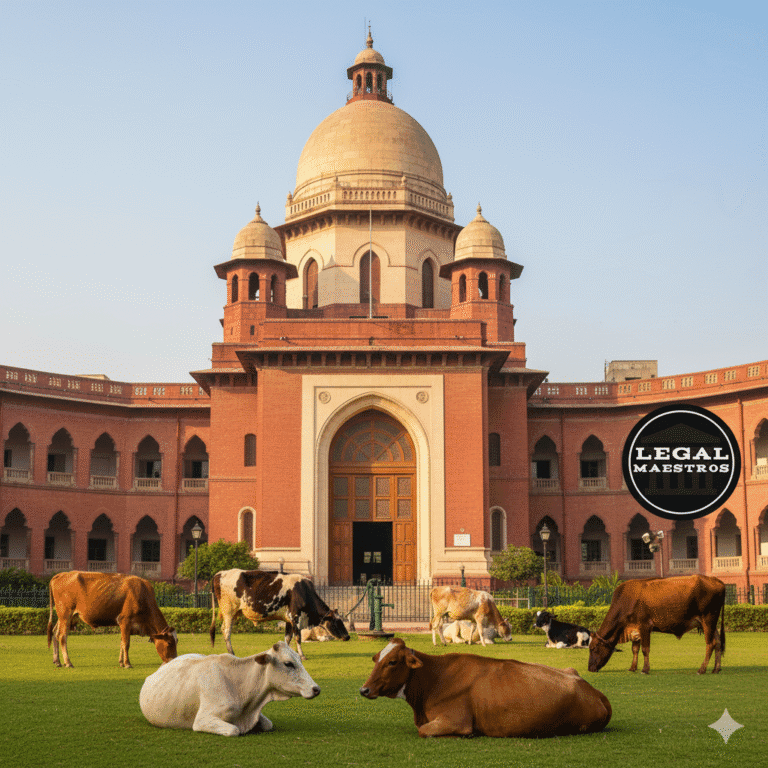
Threat To Financial Health Of Country': Chhattisgarh High Court Denies Bail To Man Accused In ₹411 Crore Medical Procurement Scam By Chief Justice Shri Ramesh Sinha
Chhattisgarh High Court Denies Bail in ₹411 Crore Medical Scam: A Firm Stance Against Economic Offenses
Notably, on June 13th, 2025, Hon’ble Chief Justice Ramesh Sinha of Chhattisgarh High Court, Bilaspur rejected the first bail application of Shashank Chopda who was accused of being the kingpin of ₹411 crore medical equipment and reagents scam. MCRC No. 3159 of 2025 is representative of the judiciary’s strong stance against economic crimes which adversely affect public funds and welfare.
The Allegations and Prosecution’s Case
The Police Station, Economic Offense Wing/Anti-Corruption Bureau, Raipur, has registered the case under Crime No. 05/2025. The Hamar-Lab scandal, where the Chhattisgarh Medical Services Corporation Ltd. (CGMSCL) was asked by the Public Health and Family Welfare Department to buy medical machinery and equipment in the months of March–April 2023, was investigated after secret information brought it to light.
The complaint mainly claims that officials from the Directorate of Health Services and CGMSCL worked together with companies like Mokshit Corporation, CB Corporation, Records and Medicare System, and Shri Sharda Industries to make unnecessary purchases at inflated prices.
For any queries or to publish an article or post or advertisement on our platform, do call at +91 6377460764 or email us at contact@legalmaestros.com.
Among the allegations against Mokshit Corporation are claims that they sold EDTA-Tubes for ₹2352 a piece when the market price was ₹8.50 and that they supplied CBC machines for ₹ 17,00,000 while the market price is ₹5,00,000. There are also allegations of spending Rs. 300 crores to buy chemicals to avoid the expiry of chemicals in the possession of Mokshit Co. Pvt. Ltd. The overall loss to the State Government is pegged at around ₹411 crore. Budgetary availability was also not ensured, administrative approval was not taken, and need as well as storage space were also not assessed according to the FIR.
For More Updates & Regular Notes Join Our Whats App Group (https://chat.whatsapp.com/DkucckgAEJbCtXwXr2yIt0) and Telegram Group ( https://t.me/legalmaestroeducators )
The Applicant’s Defense
Mr. Siddharth Mridul and Mr. Ajay Mishra, lawyers for Shashank Chopda, also contended that the applicant was never involved in the alleged offense and was simply a bidder who was awarded the tender. They stated that it was the company, not the State, that had lost ₹351 crores. The defense further argued the applicant was a “scapegoat” to avoid payment responsibilities.
They also argued that the probe was one-sided because no government officials were interrogated or arrested at first. The defense argued that documents relating to all tenders were submitted online; therefore, there was no possibility of evidence being tampered with. As for the unreasonable cost of the EDTA tubes, it was claimed that the alleged cost of ₹2352 per piece is an error and should be interpreted as ₹23.52 per piece. The accused also noted that the co-accused, Rajesh Gupta, had been granted a stay by the Supreme Court against his arrest and was seeking bail on parity grounds.
The Court’s Ruling and Rationale
The bail plea decision was served by Chief Justice Ramesh Sinha, who, after hearing the arguments from both sides, declined the bail plea, observing that economic offenses were serious in nature. The Court also stated that these were worse than regular crimes because they “harm not only a specific victim, but rather the entire economy and public trust in the financial system.”
The Court noted that the investigation “clearly established Shashank Chopda as the master of a well-orchestrated criminal conspiracy.” Amongst other allegations, it is claimed that they raised bogus invoices through fictitious companies for more than Rs. 150 crores and supplied closed-system equipment, which gave the applicant a monopoly on overpriced reagents going forward. This, the Court said, directly “jeopardizes the public by denying vital pathological tests to the public.”
The High Court looked to Supreme Court precedent, as including State of Gujarat v. Mohan Lal Jitamalji Porwalan, economic offenses are carried out with “cool calculation and deliberate design with an eye on personal profit without regard to the damage to the community. It called for www.aaae.org. The case of Nimmagadda Prasad v. Central Bureau of Investigation illustrates the tremendous increase in all types of white-collar crimes that undermine the country’s economic fabric. The Court held that releasing the accused at this point would amount to “encouraging the corrupt practices” and “demoralizing the public confidence in the justice delivery system.”
The Court similarly rejected the request for equal treatment with co-accused Rajesh Gupta, noting that Shashank Chopda appeared to be the primary beneficiary of the crime. The continuing investigation of the role played by other public officials bolstered this factor against bail, with the court again observing that there was a great risk that the applicant would destroy evidence or attempt to influence witnesses if released. The ruling represents the judicial branch’s true resolve, consistency, and courage, which have so far never flinched, even when threatened, against corruption and economic crimes.







